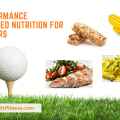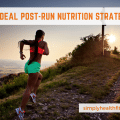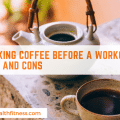
Does anything ruin progress quite as often – or badly – as bad recovery? After all, you don’t get better while you’re exercising; you get better while you’re recovering from exercise.
It might sound like a cliché, but how you recover is one of the make or break factors to whether you see progress or plateaus. The moment you finish a workout, your focus needs to shift to recovery right away.
Recovery is the driver of results – and getting it wrong could mean missing out on progress you’d already done the work for, whether muscle gain or fat-loss.
Today, we’re going to look at how you should handle post-workout nutrition, what nutrients to focus on, and some examples of the best post-workout foods.
Post-workout recovery matters
Changes in the body – like muscle or strength gains – work on a simple equation:
Stress + Recovery = Adaptation
Exercise is the stress, and recovery is the combination of factors like nutrition, sleep, and – obviously – time. If you’ve worked hard in the gym, all you can do to improve your results is make the absolute best of your recovery.
This is why you see elite athletes taking recovery seriously: they know that post workout recovery is key to better results.
The meal after your workout is the first chance you get to really effect that recovery – and that makes it an important routine or habit to work on…
Why a post-workout meal?
Your post-workout meal helps you to recover and progress by providing the nutrients your body needs after a workout, when it’s in its most sensitive state.
Workouts deplete these “recovery resources”: you’re sweating out electrolytes, burning up your carb reserves, and you’re damaging muscle proteins.
The post-workout meal is all about replacing these lost resources and producing the best environment for muscle-gains and/or fat-loss after a workout.
This meal can also help flick the mental switch from ‘stress’ to ‘recovery’ – signalling the change from “fight or flight” nervous system to the “rest and digest”. The sooner you make this switch (with food, rest, and relaxing activities), the better the effects for both the mind and body.
Post-Workout Nutrition: What Makes a Good Recovery Meal?
Post-Workout Protein is Crucial
The most important post-workout nutrient is protein.
Your muscles are made up of proteins, and workouts degrade these muscle proteins. This is one of the causes of fatigue and weakness. Dietary protein gives you a raw material to repair and replace them, and is crucial for better recovery.
Protein is the most timing-sensitive of all the macronutrients, too: getting protein from your supplements or meal is going to be more important than any other nutrient. Making sure you have abundant protein after a workout ensures you can repair and grow effectively.
This is why post-workout protein shakes and protein bars are so popular. Anything with a high protein content will help, and you want to make sure you’re getting it within an hour or two of a workout for the best results.
Carbs Replenish Energy Stores After a Workout
The other key to post-workout recovery – aside from protein – is making sure you have plenty of energy from carbohydrates.
Repair and recovery is an energy-expensive process, and there is no better source of short-term energy than carbohydrates.
The rapid energy boost from carbs helps to fuel the recovery process, as well as being a key contributor to mTOR – the main muscle-building process in your body. This is also relevant for keeping muscles stocked up with glycogen – the main source of energy for exercise that depletes during a workout.
Replenishing glycogen also helps with muscle size: just like proteins, your body is likely to increase glycogen stores over time with repeated workouts. A lot of the size of muscles depends on glycogen stores, so making sure you’re getting carbs is a great way to boost recovery and growth.
Good carb habits protect muscle – and make it possible to protect, or even build, muscle – on a fat-loss diet.
Electrolytes: Key Nutrients for Post-Workout Muscle Recovery
Electrolytes are the most important minerals for muscular function. They’re also closely related to hydration and health after a workout – during which you sweat out these essential nutrients.
The big 4 electrolytes are sodium, potassium, magnesium, and calcium.
These help to re-balance muscle chemistry after a workout, reducing muscle damage and soreness. They’re key to restoring healthy function in muscles and boosting recovery, which is why you should be focusing on them in your post-workout meal, drink, or supplement.
You can either get these from meals themselves – in quality carb sources like beans or wholegrains – or alongside your post-workout meal in a supplement or electrolyte drink.
The Best Post-Workout Recovery Foods
A great post-workout meal needs 3 things: a protein source, a good mid-fast carbohydrate source, and plenty of electrolytes/micronutrients.
Lean protein
The idea with your protein source is to get something lean and high-density so you’re getting the most protein as quickly as possible. We want to avoid excessively fatty sources, since these will absorb more slowly.
- Chicken breast
- Lean ground beef
- Turkey meat
- Lean cuts of pork or lean pork mince
- Fish – ideally something low-fat, but it’s all good
- Eggs (especially the white) – always great
- Low-fat Greek yogurt
- Low-fat cottage cheese
Good mid-fast absorbing carbohydrates
These are all about getting carbs back into the bloodstream rapidly, and we want to get those mid-fast absorbing foods. These are simple starches, perfect for refuelling after a workout:
- Fruit and fruit juices
- Any bread product
- Potatoes (not the fried kind, be realistic)
- Sweet potatoes, yams, and other tubers
- White rice
- Carrots and beets
- Pasta
- Couscous
Micronutrients
You need nutrients for health and wellbeing, especially if you’ve been putting your body under stress. After a workout, you need to top up with nutrient-dense foods that aren’t too fibrous or slow-absorbing. Here are some great contenders:
- Berries – especially fresh blueberries
- Spinach
- Wholegrains (like oats)
- Beans and pulses
- Cultured dairy like cottage cheese or yoghurt
- Fruit juices
- Tomatoes and other wet fruits
- Carrots
- Beets
- Peas
- Bell peppers
- Red cabbage
Rehydration
You need to rehydrate – and there are a lot of great options for this – but I want to outline a few of my favourites and why I think they’re great.
Effervescent water
A multivitamin effervescent that has key electrolytes in can really be a great tool for cheap, effective post-workout hydration supplement. This can be a great way to make proper water intake routine, while supporting muscular recovery/function.
Water is always going to be useful, but making the most of your post-workout water with additional vitamins and minerals can boost water uptake and micronutrient intake. Efficient nutritional choices really does add up over time.
Tea
Tea is awesome – and underrated. It’s a great alternative to coffee, packed with fantastic mental wellbeing compounds, and it’s a great relaxation-support drink.
It’s an easy way to get a bunch of benefits from a single drink, alongside obviously being a way of hydrating.
Just remember to look for something with low or no sugar. Sugar is fine in managed quantities, but the point here is the tea – not the sweetness – and you don’t want to get into the habit of unnecessary sugar intake.
What Post-Workout Supplements Should You Use?
There are specific post-workout supplements on the market – and they’re pretty effective. However, different kinds of supplements are useful after a workout so we’re going to quickly round-up a few.
Protein Shakes: What’s the Deal?
Protein shakes – and especially whey protein – are designed to be post-workout supplements.
They’re lean, they’re fast-absorbing, and they’re convenient. You’ll see athletes in every sport using a post-workout shake because they’re easy to use and often the fastest/simplest way of getting protein into the diet.
You can also mix in some simple carbs (like a dextrose powder) for a quick boost. It shouldn’t be the only thing you use after exercise – a good post-workout meal would still be a great choice – but a shake too can boost protein and carb levels without rushing to the nearest shop.
Post-workout smoothie
Smoothies are a great take on the standard protein shake – they offer all the protein benefits, plenty of carbs, and any vitamins/minerals you can think of.
The ability to blend fruits and vegetables into a smoothie make it one way of maximising post-workout recovery on every factor I’ve outlined.
Here’s a simple template for a smoothie – though you can change almost any of this to see what suits you best:
- 500ml of milk (or water)
- ½ chopped banana
- Handful of spinach (trim the stems if you have time)
- A dash of cinnamon (this is both delicious and improves carbohydrate uptake)
- 5 – 1 tablespoon of brown sugar
- 1-2 scoops protein powder
- (Optional for more calories) handful of rolled oats
This is a simple and effective way to boost your post-workout nutrition and all it requires is a few simple ingredients and access to a blender. It’s a little more time-intensive than a protein shake, but also much better.
Protein bars: convenience vs control
Protein bars are pretty varied: some are great, some are terrible. I generally prefer a shake to a protein bar – the speed of absorption is better, and you have more control over the dose.
However, a protein bar will usually contain protein and carbs, and is probably more convenient post-workout snack for most people. It’s a good choice, if you’re not able to get a shake into your diet, but still want an immediate pick-up after a hard workout.
The important thing is to make sure you’re not using protein bars and accidentally going over your sugar intake, since they can be quite sugar-rich.
Creatine
Creatine is well-known for being a great supplement for improving strength-endurance and muscular energetics.
However, it’s also a decent post-workout supplement for its effects on muscle hydration. We know muscle hydration is important for muscle growth, and creatine can draw more water into the muscle, as well as help boost muscular energy stores.
If you’re taking creatine, trying to split it up and taking some with plenty of water and your electrolytes after a workout. It’s not as powerful as protein or carb intake, but can give you that slight edge for better results.
Foods to avoid
The only foods you really need to avoid after a workout are very-slow absorbing nutrients. These are usually awesome, but in this context they’re slowing down the shuttling of protein and carbs to your muscles.
There are really only 3 categories to avoid: fats, fiber, and slow-absorbing carbs.
Fats are slow to absorb, and they’re the only nutrient that’s not closely tied to muscle-building, so they’re more appropriate further out from workouts. Fiber has much the same problem; it slows the digestion process, so it suits meals a few hours before/after a workout.
Slow-absorbing carbohydrates like brown rice or fibrous veg are also going to be slow-digesters. They’re fine for most of the day, but after a workout you want to get something faster, instead. This is just preferential; if you don’t have any options, slow carbs are okay, but faster is better for post-workout foods.
Obviously, small amounts of these foods aren’t going to ruin your post-workout meal, but they definitely shouldn’t be the main focus and they will only slow down the important nutrients.
You may also be interested in this article: What to eat after a run
Final Thoughts
Getting post-workout nutrition right just requires following the simple principles I’ve set out today. The real challenge is getting into the routine and finding which foods you enjoy most.
If you put some effort into the way that you eat after a workout, you’re going to give yourself the edge you need to make the most of your workout. You can start improving your recovery the moment you leave the gym if you plan ahead.
Post-workout meals and supplements are only one part of a great diet, but it’s a routine you can get into to make sure you’re getting it right at the time when it matters most.
Read this article if you’re interested in golf nutrition.







